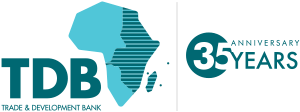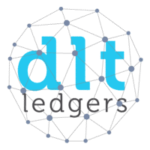TDB BECOMES THE FIRST AFRICAN DFI TO CLOSE A LIVE END-TO-END TRADE FINANCE TRANSACTION USING BLOCKCHAIN TECHNOLOGY



With dltledgers as the blockchain partner and Agrocorp, as the trading company, over 50,000MT of sugar is moved from Asia to Africa
Johannesburg, 12 November 2019 – It’s a first for an African development finance institution, a first in the trade of sugar, and the largest single-trade transaction to date to have been completed by dltledgers, the world’s largest production blockchain platform for global trade finance, via which TDB has been able to close a $22M white cane sugar trade transaction.
The journey started in Asia, where 50,000MT of white cane sugar was shipped to a buyer in one of TDB’s Member States, with Agrocorp International – a Singapore-based leading global agri-commodity trading and processing company – as the seller and trading company, and TDB as the negotiating bank.
With the parties performing their operations digitally in one single private blockchain, this transaction saved a total of 4 days – a number which could be pushed to 8 in upcoming trades. Likewise, it was paperless, and thus with a lower cabon footprint, and more secure thanks to encryption and verification technologies. It also made it possible to reduce all parties’ risks by eliminating potential errors and ambiguities in the exchange and amendment of documents.
In 2018, the world exported over $19tn and imported closer to $20tn – about 80 to 90% of which relying on some type of trade finance, whether trade credit, insurance or guarantees, such as in the case of this trade, an LC confirmation and discounting transaction.
By some estimations, the global trade finance gap is about $1.5tn, an amount expected to rise to $2.5tn by 2025. With blockchain, the digital disruption brought about in the world of trade finance has the power, not only to bridge this gap, but to boost trade exchanges, notably in Africa, where already, many are leapfrogging over old technologies and directly adopting modern ones – as it was the case with the continent’s mobile revolution.
Admassu Tadesse, TDB President and Chief Executive says that “TDB continues innovating and is keeping step with the fourth industrial revolution by embracing new digital technologies like blockchain. As we grow, just as it is the case with our clients, we need to continue delivering more for our partners and shareholders by improving the efficiency and speed of our processes while diminishing our carbon footprint, and with this, sustain our vibrant story of impact and attractive returns. With 70% of our portfolio in trade finance, this transaction is lighting up our path into the future.”
“We are thrilled to have launched our blockchain operations with our partners Agrocorp and dltledgers” added Michael Awori, TDB Chief Operating Officer. “With this transaction, we have the potential to revolutionize how we finance cross-border trade at the Bank. Not only will it impact our bottom-line, but it will enable us to reduce processing time, be more responsive to our clients, and de-risk transactions”.
“We are delighted to see the successful execution of this Afro-Asian trade on our platform” says Samir Neji, dltledgers CEO. “We are now establishing presence in Japan and MENA, and project to carry out $10bn worth of African trade transactions with the Asia Pacific region, including Japan by June 2020. We are confident that with TDB’s adoption of dltledgers blockchain node for African trade transactions, tens of billions of dollars will be added annually to Africa’s economy, by filling the trade finance gap using our blockchain technology, thereby bringing in transparency and trust across all parties”.
Krishna Prasad, General Manager Finance says that “Agrocorp is proud to have collaborated with TDB and dltledgers on this trade digitization initiative. The digitization of trade flows via blockchain is something that has the potential to really revolutionize the way our industry operates. This transaction has proven that sizeable flows can be digitized to avail significant savings in time when generating and sharing trade documents. This time saved can generate meaningful savings with regards to vessel discharge rates and port detention costs. The fact that this initiative was done with a prominent development bank in Africa and in Ethiopia which is an important market for us, makes it all the more special.”
